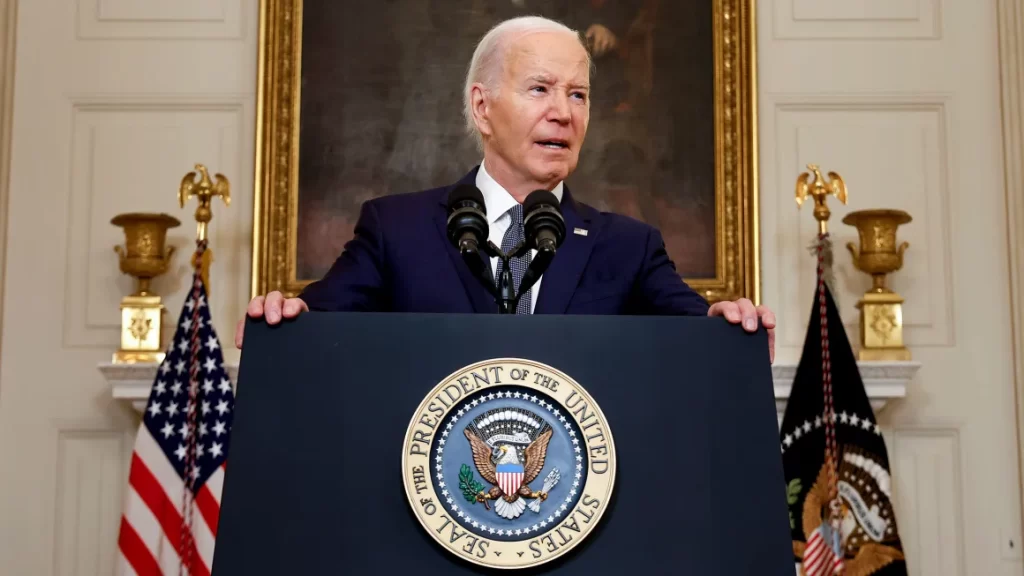Stalemate in Ceasefire Negotiations: Biden’s Team Reassesses Strategy
3 min read
President Joe Biden announces a proposed ceasefire between Israel and Hamas while delivering remarks at the White House on May 31, 2024.

President Joe Biden announces a proposed ceasefire between Israel and Hamas while delivering remarks at the White House on May 31, 2024.
President Joe Biden’s national security team is currently not preparing to present an updated ceasefire proposal for the ongoing Israel-Hamas conflict, according to two senior administration officials. This development highlights a significant stall in negotiations aimed at ending the violence.
Recently, there had been expectations that a new “bridging proposal” might be finalized and presented to President Biden before being shared with other key mediators such as Qatar and Egypt. However, the senior officials revealed that Biden’s advisers are holding off on advancing any proposal until they are confident Hamas is genuinely ready to agree to it. At present, they do not believe that Hamas is inclined to accept any updated agreement.
US Secretary of State Antony Blinken, who has been actively involved in regional diplomacy, returned to Egypt on Wednesday. His visit marks the first time since the Hamas attacks on October 7 that he has traveled to the Middle East without including Israel in his itinerary. This absence underscores the low expectations for a breakthrough in ceasefire discussions during this trip.
A significant hurdle in the negotiations concerns the issue of Palestinian prisoners. Hamas has recently escalated its demands, insisting that life-sentence prisoners be released in exchange for the civilian hostages taken during the October 7 attacks. This marks a shift from earlier negotiations where such prisoners were only to be released in exchange for Israeli soldiers. US officials have pointed out that this change complicates the talks further.
US officials are attributing much of the current impasse to Hamas and its leader, Yahya Sinwar. They express doubts about Sinwar’s commitment to reaching a viable agreement. The recent execution of six hostages in Gaza, including one Israeli American, has only intensified frustration among those involved in the negotiations.
In Washington, there is also growing concern about Israeli Prime Minister Benjamin Netanyahu’s willingness to seek an end to the conflict. Netanyahu has been vocal about maintaining Israeli military presence along the Philadelphi Corridor, a key strip of land along the Gaza-Egypt border, once a ceasefire is in place. Some US officials view his insistence on retaining control of this strategic area as a significant obstacle to progress.
President Biden views facilitating a ceasefire between Israel and Hamas as a critical foreign policy objective. Despite extensive efforts over the past months, there is increasing doubt within the administration about whether a deal can be reached before Biden’s term ends in January. Nonetheless, officials remain hopeful and committed to continuing negotiations, despite the current bleak outlook.
National Security Council spokesperson John Kirby addressed the media last week, refraining from providing a timeline for when the bridging proposal might be ready. He emphasized that the administration is working “diligently” to advance the process. Kirby noted, “The conversations are continuing,” but acknowledged the uncertainty about whether Hamas will genuinely engage in negotiations and agree to terms.
In summary, the situation remains tense and unresolved, with significant challenges on both sides of the negotiation table. As the Biden administration navigates these complexities, the path to a ceasefire remains fraught with obstacles, reflecting broader geopolitical tensions and the high stakes involved in resolving this long-standing conflict.